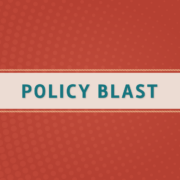Challenge to Indian Child Welfare Act Advances at Supreme Court
The Supreme Court is preparing to hear a constitutional challenge to the Indian Child Welfare Act (ICWA) that consolidates four petitions to review the Fifth Circuit’s April 2021 en banc decision in Brackeen v. Haaland. In this decision, the United States Court of Appeals for the Fifth Circuit upheld the overall constitutionality of ICWA. However, it overturned certain ICWA processes and provisions that concern placement preferences of Native children in Indian homes. On May 26, 2022, the Court received amicus briefs from supporters of the ICWA challengers. The challengers and their amici argue that ICWA violates several constitutional provisions including equal protection, anticommandeering, and nondelegation. The next round of amicus briefs in support of ICWA and Tribal intervenors are due by August 12, 2022, and oral arguments are expected to begin after the Supreme Court term starts in October.
Background
ICWA represents the gold standard in child welfare proceedings, strengthening and preserving American Indian and Alaska Native (AI/AN) family structure and culture. When it was established in 1978, studies showed that between 25% and 35% of all Native children were removed from their homes by state child welfare and private adoption agencies. Of those, 85% were placed with non-Native families, even when fit and willing relatives were available. ICWA re-established tribal authority to safeguard against such practices by requiring that Native children be placed with extended family members, other tribal members, or other Native families prior to placement in non-Indian homes.
Today, Native children continue to be overrepresented in state foster care systems at a rate 2.7 times higher than their non-Native peers. Because more than 70% of AI/AN people live in urban settings, this overrepresentation undoubtedly has an impact in urban AI/AN communities. According to the Indian Health Service (IHS), Native youth living off-reservation often face a higher risk of health problems, including mental health and substance abuse, suicide, gang activity, teen pregnancy, abuse, and neglect. Additionally, IHS found that urban Indian populations experience the same health problems as the general Indian population, but these problems are exacerbated by a lack of access to family and traditional cultural environments. Challenges to ICWA threaten to place urban Native youth at even greater risk if they enter foster or adoption systems that do not offer protections to keep them from being further removed from their communities and culture.
NCUIH previously provided an in-depth analysis on the impact of ICWA. We will continue to monitor ongoing developments as Brackeen v. Haaland proceeds to oral argument, and to provide updates on how the case impacts urban Indian communities.






Leave a Reply
Want to join the discussion?Feel free to contribute!